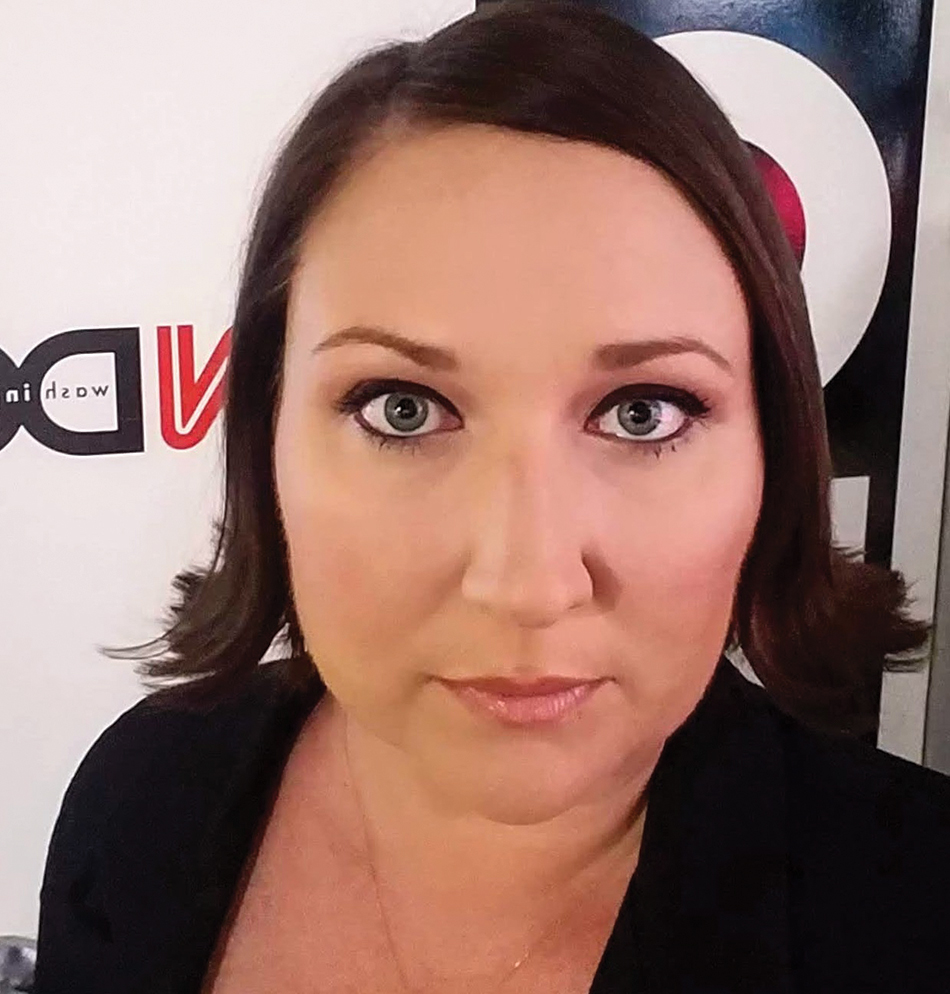A DemocracyCan’t Afford to LoseIts Storytellers
The smarter way to stay on top of the multichannel video marketplace. Sign up below.
You are now subscribed
Your newsletter sign-up was successful
As I wove among the thousands of protesters gathered in the streets around the White House over the past few days, I could easily pick out the journalists dotting the crowd. With press credentials hanging from their neck, a notebook in hand or a camera slung over their shoulder, they were there to chronicle the story of historic protests against police brutality sweeping the country.

Dozens of journalists rested on the front porch of the historic St. John’s Church, where just days before the attorney general had ordered peaceful protesters to depart, with chemical agents used to clear them out in advance of the president's photo in front of its boarded-up windows. It was pretty easy to pick out the journalists from the crowd, even with so many people wearing masks to protect themselves from COVID-19. We are currently in the midst of not just a historic civil rights movement, but also in the midst of a once-in-a-lifetime pandemic, so we cannot afford to lose our storytellers.
Over the past two weeks, though, we have seen those charged with upholding the law clash with those practicing their First Amendment rights, from protesters exercising their right to freedom of association and assembly, to journalists embodying the right to freedom of the press. Despite the fact that journalists and citizens alike have a right to document law enforcement and newsworthy events, they have been targeted and attacked by the very people charged with upholding the law: Police were responsible for about 80% of the reported incidents during the first two weeks.
Reporters Singled Out
Since May 26, when protests in response to the death of African-American citizen George Floyd by police in Minneapolis, more than 11,000 people have been arrested. Alongside the protesters, it appears that journalists have been specifically targeted for arrest and attack. By June 8, the U.S. Press Freedom Tracker, of which the Committee to Protect Journalists is a founding partner, had documented at least 327 press freedom violations. Among these were at least 54 arrests of journalists, the destruction of equipment and physical attacks on journalists with weapons like tear gas and rubber bullets.
For perspective, in 2019 the Tracker documented a total of 152 violations in the U.S. While the number of journalists affected may pale in comparison to the protesters, the implications are serious.
Journalists identifying as people of color are also particularly vulnerable. In the midst of protests about police brutality and systemic racism, among the earliest incidents reported was the on-air arrest of black Latino reporter Omar Jimenez, along with members of his CNN team. His white colleague, working one block over, was not detained. Journalists of color are forced to exist in a space of double jeopardy, targeted not only for their race, but now for their job as well. Journalism in the U.S. is still wildly uneven in representation, with the American Society of News Editors’ 2019 Diversity Survey revealing that only 21.9% of salaried newsroom staff are people of color. I won’t claim to speak for the experiences of these journalists, but our past reporting has shown that protests present additional threats for black journalists. We need their perspective; we cannot afford to lose their voices now.
The smarter way to stay on top of the multichannel video marketplace. Sign up below.
The U.S. has long been a champion of press freedom, holding the First Amendment up as a model, a standard set for protecting and encouraging a robust free press. The Constitution protects both the right of civilians to protest, as well as journalists’ right to cover it. But as authorities across the country continue to disparage and allow for attacks on the press, that standing is now in jeopardy. And the
failure of U.S. leadership to protect even its own journalists will have direct consequences for journalists in danger around the globe.
Journalism Is Essential
Journalists are an essential service, and that’s a status explicitly confirmed by leaders around the U.S. and the world during the early stages of the COVID-19 pandemic. They have a critical role to play in these historic moments. To bear witness and to bring information not only to their communities, but the world. And even in the face of mounting hostility, they have not backed down nor turned the camera away.
The world is watching. It’s imperative for state and city authorities across the country to show the same courage and conviction. Police departments must allow journalists to work and cover this story as safely as possible, and failure to do so must be thoroughly investigated and those responsible held to account. If they don’t, we run the risk of losing the thread on a vitally important story. Communities — and democracy — will suffer as a result.
Courtney C. Radsch, Ph.D., is advocacy director at the Committee to Protect Journalists and author of Cyberactivism and Citizen Journalism in Egypt: Digital Dissidence and Political Change.
